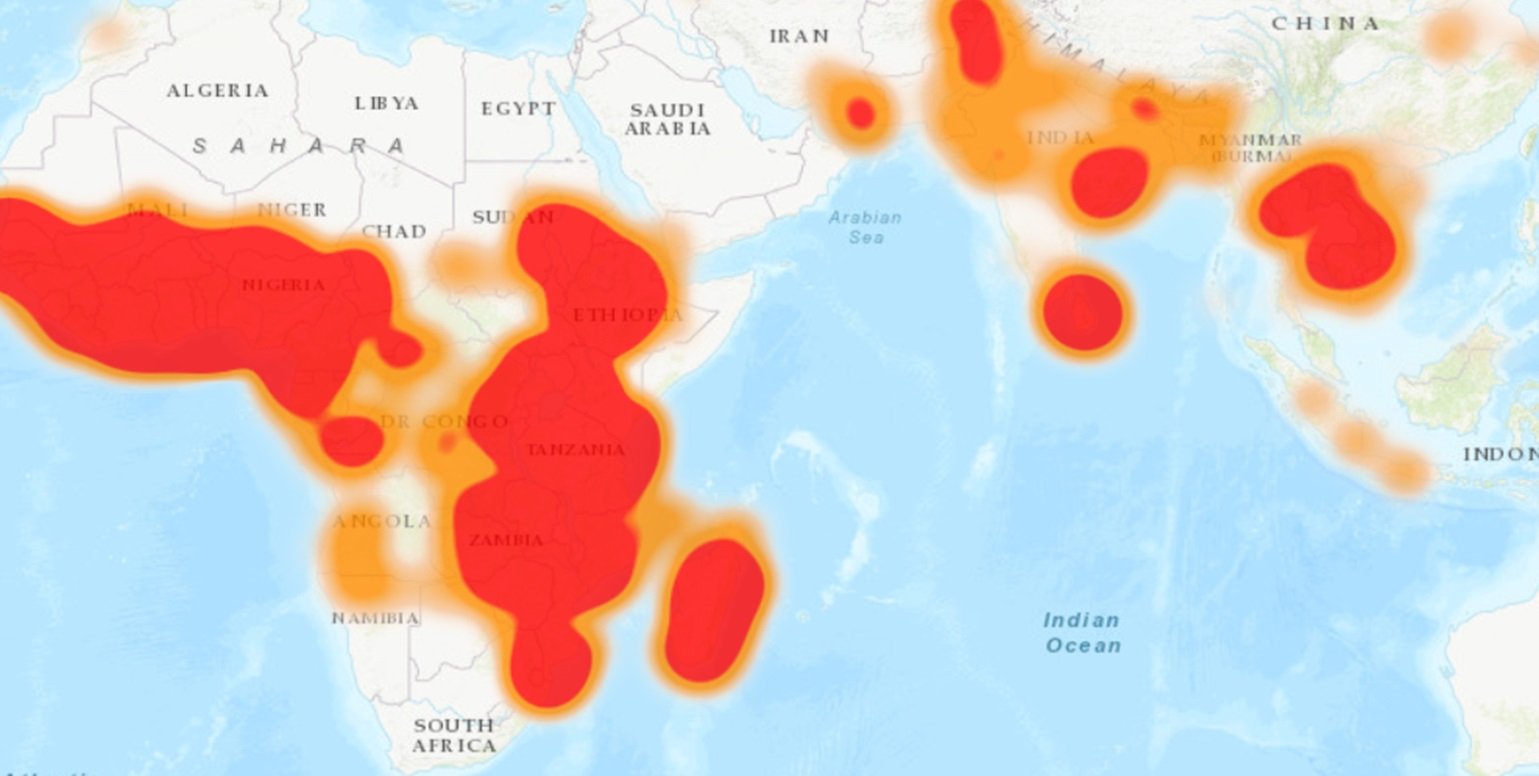
The Problem
Insecticide resistance is impacting the effectiveness of legacy (and new) IRS insecticides used for vector-borne disease control.
This is being exacerbated by climate change.
Malaria Statistics 2022
249 million cases globally
2% increase since 2021
608,000 dead globally
6% increase since 2019
95% of deaths in Africa
450,000 children under 5
Dengue Fever Statistics 2023
5 million cases globally
80% in Americas
5,500 deaths
1.3 billion children at risk
All Anopheles species (91), all Insecticides classes (9), all modes of action (8)
The market for IRS* has declined sharply due to the cost of implementing IRS, the failure of the malaria education program, and insecticide resistance.
Insecticides only account for 20-25% of the cost to implement IRS.
The balance of the cost is spraying operations, local labor, local admin, etc.
IRS is a proven strategy to reduce malaria cases: 80% reduction in South Africa reported in 2019
It will require sustained implementation and higher levels of IRS coverage.


